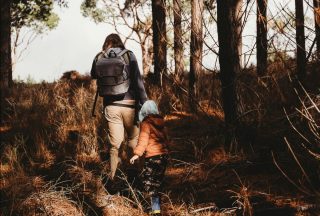Changing demographics and an aging population mean that 3 in 5 of us will be looking after a loved one at some point in our lives. If you are looking after a partner, adult child, relative or friend, here are some resources that can help you.
Looking after a partner
Looking after a partner can bring its own unique challenges. Many carers speak about finding it hard to come to terms with the change in roles, despite the closeness looking after someone can bring. You may also feel a sense of loneliness if you have to take control of the finances, home and organising medical professionals if your partner is unable to.
Remember no matter what you feel, your feelings are valid and taking time for yourself is incredibly important. If you are finding things hard, you are not alone. According to Carers UK research (https://www.carersuk.org/for-professionals/policy/policy-library/alone-caring), almost half of carers say they’ve faced relationship difficulties because of their caring role.
Relate’s website (https://www.relate.org.uk/) has some great advice around building strong relationships, dealing with conflict, money problems and more. They also offer free online chats with counselors, or over the phone.
You may also find it helpful to come along to one of our carers cafes or support groups (https://carersupportwiltshire.co.uk/whats-on/) to talk to others in similar situations, have time for yourself, and feel supported and heard.
We also have our Here to Talk service – a chance for you to talk about how you feel with a trained volunteer, most of whom also have had caring experience. To sign up, call us on 0800 181 4118, or email admin@carersupportwiltshire.co.uk
Looking after a parent
If you are looking after a parent, it may be something you have done for a long time, or something that is new to you and a bit of a change in typical parent/child roles.
Often carers say they feel like the bond between them and their parent has changed due to the stresses of looking after someone, arranging care, going to hospital appointments and more. Looking after someone can mean we forget what life was like before the other person’s health changed.
Reminiscing can help you remember what you love about the other person, so dig out old photo albums or listen to music you once enjoyed together. Why not try a hobby you can both enjoy together, like drawing or painting, or find activities or groups that allow both you and who you look after to come along.
If you’re looking after someone with Dementia, Beyond Dementia (beyonddementia.org.uk) has activities and groups that both you and who you look after can join in with.
Looking after an older child
It may be that you are a parent carer and looking after your child who is now an adult themselves. There may be a lot of changes when your child turns 18, they may see different doctors or health professionals or be moving to a different education setting.
It is important to note that the general rights of parents and disabled children under 18 remain the same. Contact (https://contact.org.uk/) have some useful information on their website. For example, about how parents still have the right to request an assessment of their child’s needs (https://contact.org.uk/advice-and-support/social-care/how-to-access-services/needs-assessments/) and the local authority is still under a duty to arrange support and practical assistance (https://contact.org.uk/advice-and-support/social-care/what-is-social-care/) in meeting those recognised needs subject to criteria.
Once your child turns 18 you are also able to get a carers assessment to discuss your own needs and what may help you in your caring role. Contact Carers Together Wiltshire on 01380-710300 or email enquiries@carerstogetherwiltshire.org.uk to request a carers assessment.
For more information, advice and support for parent carers, go to the Wiltshire Parent Carer Council here; http://www.wiltshireparentcarercouncil.co.uk/en/Home_Page.
If you are looking after an adult with autism, find support on the National Autistic Society’s website (https://www.autism.org.uk/), and on our resource page on looking after someone with autism (https://carersupportwiltshire.co.uk/resource-centre/caring-for-someone-with-autism/).
If you are looking after an adult with a learning disability, find information and support on Mencap (https://www.mencap.org.uk/advice-and-support/children-and-young-people/support-parents-and-carers-children-and-young-people) and Contact (https://contact.org.uk/advice-and-support/social-care/moving-into-adult-services/).
The NHS has a guide on changing from child to adult care when your child turns 18, which you can view here; https://www.nhs.uk/conditions/autism/autism-and-everyday-life/changing-from-child-to-adult-care/.
Looking after a sibling
Many young carers or young adult carers often look after their siblings, which can bring its own set of challenges. If you are a young carer you can find support with Youth Action Wiltshire.
Sibs is also a great website supporting siblings of disabled children and adults. They have handy guides for adult siblings (https://www.sibs.org.uk/support-for-adult-siblings/guides/), and support and advice for child siblings (https://www.sibs.org.uk/supporting-young-siblings/).
Conflict with other family members or loved ones
If you’re looking after someone, it might begin to affect other relationships around you. It may be that you have less time to spend with other family members, partners or even your children. If you feel your relationships are suffering due to your caring role, remember to talk and be open with those people in your life. They may not know the true extent of what you’re going through, or how they can help you.
Issues with siblings may also arise. Barry J. Jacobs, an American clinical psychologist notes that sometimes “parents often have preferences for which child will be the primary caregiver, which may stir up resentments with siblings.” You can read his article on the AARP website here; https://www.aarp.org/caregiving/life-balance/info-2019/conflicts-with-siblings.html. It can be helpful to agree to keep one another informed of any changes in your family member’s condition or needs, or even schedule family ‘meetings’ to discuss what is going on so everyone is in the loop.
Family Connections free courses
Do you have a loved one troubled by intense emotions they can’t control or regulate?
Does your loved one self harm, become suicidal, lash out or use alcohol or drugs because of the intensity of their emotions?
Avon and Wiltshire Mental Health Partnership NHS Trust (AWP) is providing Family Connections courses that might be helpful for you. Family Connections is a ‘carers course’ for those that have a relative or friend who is a former or current AWP service user and has:
- intense and volatile emotions (such as shame, anger, sadness and anxiety)
- chaotic relationships
- fear of abandonment
- impulsivity and/or engages in self-harm or suicidal behaviour
Family Connections courses have a good evidence base in relieving the burden of caregiving for those with a relative experiencing the difficulties noted above. It has been developed and promoted by the National Education Alliance for Borderline Personality Disorder (NEABPD). You can find out more on their website here; https://www.borderlinepersonalitydisorder.org/.
Family Connections is designed to help you have a better understanding of your loved-one’s experience and behaviour and, most importantly, to develop skills to improve your own well-being in a supportive peer environment.
The course consists of twelve, 2-hour, weekly classes delivered through video conferencing. The courses are led by mental health clinicians, who have specialist skills and knowledge in working with people troubled by emotion intensity, and carers, who themselves have attended Family Connections. All AWP Family Connections course leaders have completed NEABPD approved training in leading Family Connections courses.
For more information or to sign up for Family Connections, contact AWP’s Wiltshire Psychological Therapies Service, Tel: 01722 820121


You are not alone
No matter how you feel, looking after someone can bring its own set of challenges and rewards. What’s important is that you remember to be kind to yourself, take time for your own health and wellbeing, and reach out for support.




